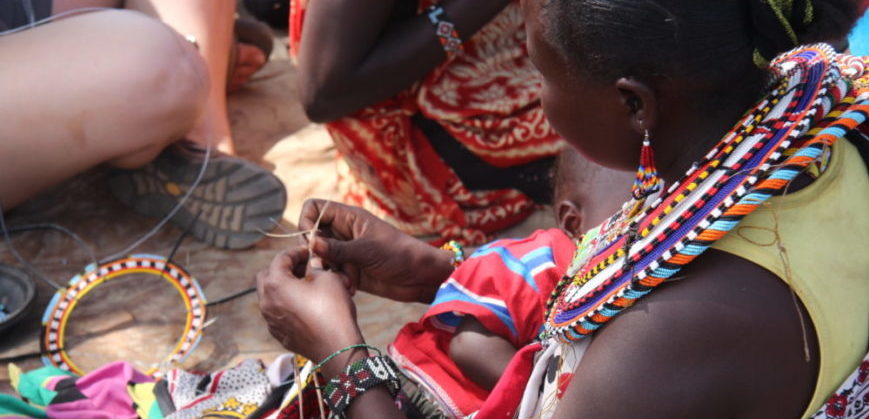
Handcrafted and fair trade goods are part of a project for Conservation Leadership through Learning master’s students.
If you search online for an environmental conservation international master’s program, you’ll get two options. The one Grace Fullmer chose to pursue is the Conservation Leadership through Learning program at Colorado State University.
Fullmer said that after a campus visit, which included sitting in on classes and talking with professors, she was sold. “The faculty were welcoming, kind and interested in you, interested in having a conversation,” she said. “That jibes with my personality.”
The master’s degree, offered through the Department of Human Dimensions of Natural Resources in the Warner College of Natural Resources, prepares students to address conservation issues around the globe. It is built on principles of experiential learning and interdisciplinary instruction.
Prior to coming to CSU, Fullmer worked at the Poudre Learning Center in Greeley through Americorps VISTA, a national service program designed to alleviate poverty. She also volunteered with the Biosphere Foundation in Asia and with a marine turtle sanctuary.
Geoff Elliot is also enrolled in the CLTL program and works at the Rocky Mountain Conservancy. He was drawn to the program for its practical approach.
“I was looking for a way to gain more experience,” he said. “I wanted to develop a stronger framework to do more where I’m working right now and enact change in the community in Estes Park.”
Market with a Mission
As part of the program, Fullmer, Elliot and their classmates have organized a holiday Market with a Mission, Saturday, Dec. 3, 9 a.m.-3 p.m. at Everyday Joe’s on Mason Street in Fort Collins. Vendors selling fair trade or products espousing similar principles that will be on hand include Awaken, Threads Worldwide, Fair Trade Republica and Colorado Haiti Project.
“The basis for the market was a combination of social and environmental justice issues, but on a global scale,” Elliot explained. “We see the potential in Fort Collins for the community to really invest in organizations that help provide opportunities, for those experiencing social or environmental injustices.”
For example, the Samburu Youth Education Fund, which was founded by CLTL’s Brett Bruyere, will sell baskets, serving spoons and jewelry. Ninety percent of the fund’s budget supports scholarships for secondary school in Kenya, which costs students $400 or more each year.
The CLTL students said the intention is to create an annual event, though they also plan to use the market to gauge the need for and interest in events that contribute to positive change. “We felt that this was a good way to take the pulse on whether the community is ready to take a leap forward, and promote equity on a global level,” Fullmer said.
Elliot said the market connects with the framework of the graduate program, too.
“Many of my classmates are here to work toward improving conditions for social and environmental justice issues worldwide,” he said. “This project, in that it presents the opportunity for others to jump on board, is really fitting with what we want to do.”
The Conservation Leadership through Learning program lasts two semesters, and includes a final capstone project and presentation.